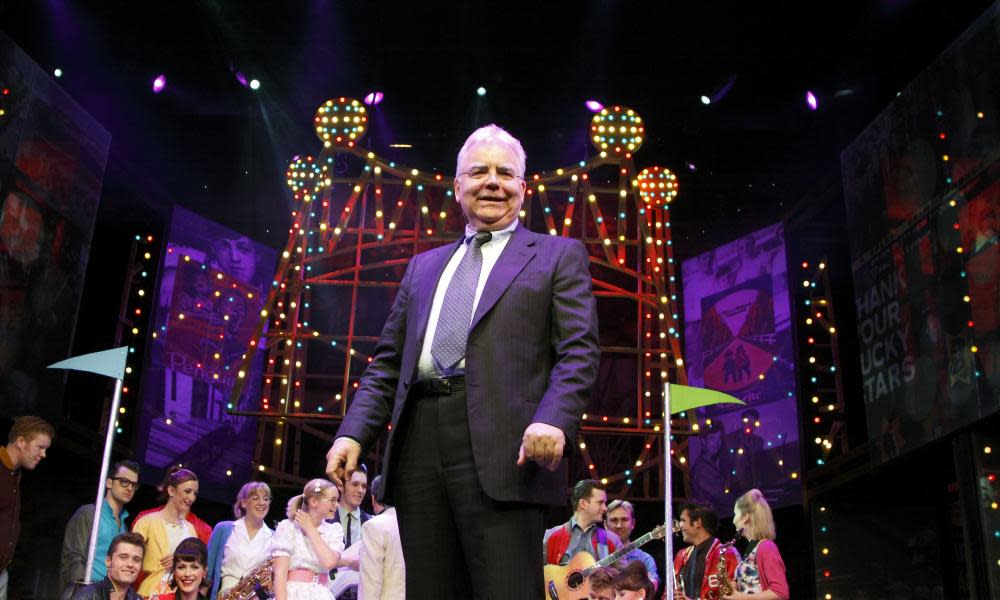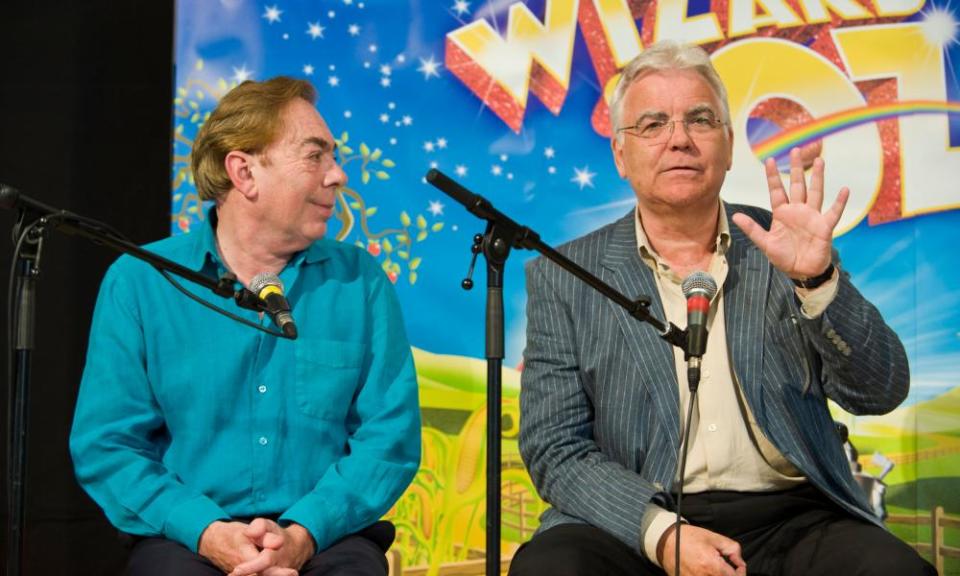‘His talent and enthusiasm never waned’: Blood Brothers and Evita producer Bill Kenwright

While he was primarily a theatrical producer – technically a background role – Bill Kenwright in person radiated the confidence and bonhomie of the actor he originally was (starting in ITV’s Coronation Street) and the staging brain of the director he intermittently became: especially with recurrent productions of Andrew Lloyd Webber’s and Tim Rice’s Joseph and the Amazing Technicolor Dreamcoat and Evita.
Theatre was almost as great a love for him as football and his family. Once, in the aisle at a first night, I saw him conducting alternate conversations with punters on either side about the plays of Chekhov and a new signing for Everton FC (where he had levels of investment and influence until death). Revealingly, it seemed to me that he would have found it impossible to prioritise one subject over another and so had to carry on both chats. Once, he urgently took me aside at a theatre and, instead of – as I had anticipated – giving me a scoop about Ian McKellen playing Oedipus Rex somewhere, he wanted reports on an Everton junior on loan at a lower league club I support. (The striker, Dominic Calvert-Lewin, confirming Kenwright’s interest, subsequently played for England.)
It is impossible for a theatre producer – responsible for deciding who works and, when a show is faltering, those soon to be unemployed – not to accrue negative opinions, and Kenwright did, mainly from those who felt he could be too tight with budgets. He was the only producer, to my knowledge, who insisted on approving every single unpaid ticket, whether to critics (and their companions) or celebrities/influencers who might win a production some gossip column inches. Even his single greatest achievement as a producer – the 24-year London West End run of Willy Russell’s musical Blood Brothers, was a questionable success to some members of the Musicians’ Union because the show can be performed without a large orchestra and even, potentially, with actors playing guitars.
Kenwright was also the opposite of a hands-off producer. At any performance he attended, he sat with a large spiral notebook on his knees, scrawling torrential observations that would be passed on to the director or sometimes (controversially for etiquette) the actors.
Against any naysayers, though, must be ranged that some noted showbiz perfectionists – composer Lloyd Webber and actors McKellen and Martin Shaw – were among Kenwright’s most constant collaborators, which must say something about the respect in which he was held.
For the last decade of his life, he faced aggressive cancer and life-extending but alarming treatments. In common with many such patients, he disliked metaphors of battling and fighting, so it should only be said that he was impressively stubborn and courageous. One of the procedures he regularly underwent sounded like the most painful optical procedure endured by any theatrical figure apart from Gloucester in King Lear, but, if these injections fell on the day of a press night, interview or football Premier League meeting, Kenwright would always attend them, as jokey and energetic as ever.
In my experience, it is usually a good sign if our first memory of someone, on hearing of their death, is their laugh. Though knowing him only as a journalist and a fellow football obsessive, I can hear now his thrilled giggle as he chattered about great actors or players – in latter years, he was luckier with talent on the boards than the grass – or his high pride in the achievements of his partner, the actor Jenny Seagrove, and his daughter, the TV and film producer Lucy Kenwright. One of his last productions was a revival, in London and Windsor, of AR Gurney’s epistolatory drama, Love Letters, with Seagrove and Shaw as fate-crossed lovers.

To succeed in any field, talent and enthusiasm are vital and, though Kenwright’s touch perhaps deserted him in football towards the end, it never did in theatre. One of his last Windsor Theatre Royal productions – the new play Frank and Percy by Ben Weatherill, with McKellen and Roger Allam – transferred to The Other Place in London, and, as his health failed, was already sold out for almost every performance until the end of its (extended) run in late December. The 18th Broadway transfer of his career, My Son’s A Queer (But What Can You Do?), is due to open in New York in February.
In his lifelong balance between two of the UK’s favourite entertainments, that might almost have made up, on the final weekend of Bill Kenwright’s life, for the Merseyside derby: Liverpool 2 – Everton 0.


